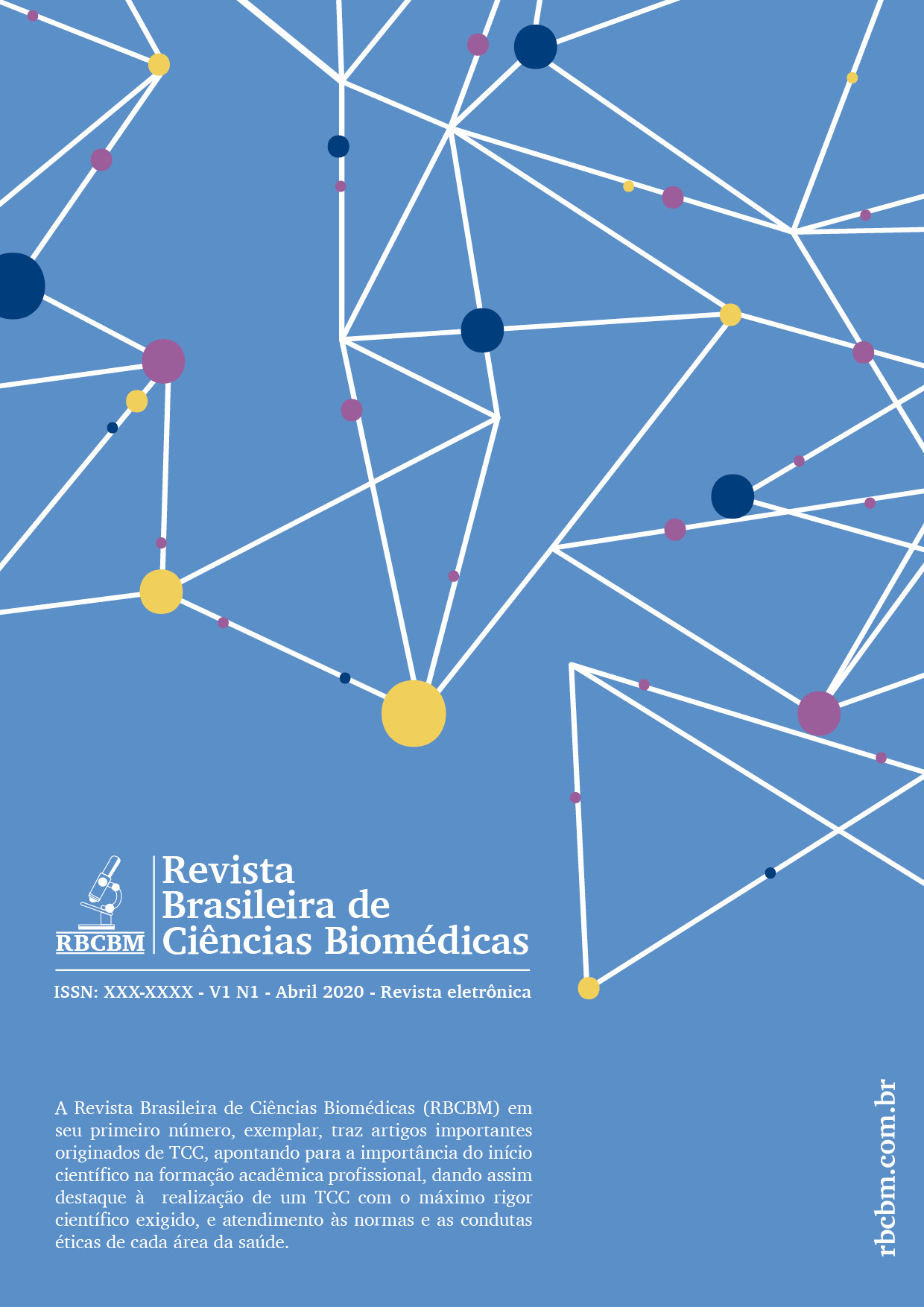Attention to community actions in the training of Biomedicals
Main Article Content
Abstract
Article Details

This work is licensed under a Creative Commons Attribution-NonCommercial-NoDerivatives 4.0 International License.
Copyright Statement - Policy Proposal for Open Access Journals
Authors who publish in The Brazilian journal of Biomedical Sciences (RBCBM) agree to the following terms: 1 - Authors retain the copyright and grant the journal the right to first publication, with the work simultaneously licensed under the Creative Commons Attribution License allowing sharing of the work with recognition of the authorship of the work and initial publication in this journal. 2 - Authors are authorized to assume additional contracts separately, for non-exclusive distribution of the version of the work published in this journal (eg, publishing in institutional repository or as a book chapter), with acknowledgment of authorship and initial publication in this journal. 3 - Authors are allowed and encouraged to publish and distribute their work online (eg in institutional repositories or on their personal page) at any point before or during the editorial process, as this can generate productive changes, as well as increase the impact and citation of published work.
This is an open access article under the CC-BY license
References
Barbosa, L. A.; Sampaio, A. L. A.; Melo, A. L. A.; et. al. (2009). A educação em saúde como instrumento na prevenção de parasitoses. Revista Brasileira de Pesquisa em Saúde. Fortaleza, 22(4): 272-278.
Bloom, B. S., Hastings, J. T., & Madaus, G. F. (1971). Handbook on formative an sommative evaluation of student learning. New York: McGraw-Hill.
Bloom, B. S., & et. al., (1956). Taxonomy of Educational Objectives. New York: David Mckay.
Brasil. Constituição Federal de 1988, Seção II - Da Saúde - Art. 196. Promulgada em 5 de outubro de 1988. Disponível em
Cotta, R. M. M.; Maia, T. M.; Magalhães, K. A.; Marques, E. S.; et. al. (2007). Probreza, injustiça e desigualdade social: repensando a formação de profissionais de saúde. Revista Brasileira de Educação Médica, 31(3):278-286.
Machado, E. R., Santos, D. S., & Costa-Cruz, J. M. (2008). Enteroparasites and commensals among children in four peripheral district of Uberlândia, State of Minas Gerais . Revista da Sociedade Brasileira de Medicina Tropical , 581-585
MINISTÉRIO DA SAÚDE. RESOLUÇÃO RDC Nº 302, DE 13 DE OUTUBRO DE 2005. Regulamento Técnico para funcionamento de Laboratórios Clínicos. Disponível em:
Mitre, S. M.; batista, R. S.; Mendonça, J. M. G.; et. al. (2008). Metodologias ativas de ensino-aprendizagem na formação profissional em saúde: debates atuais. Revista Ciência & Saúde Coletiva, 13(Sup 2):2133-2144.
Nascimento, A. M., Junior, W. d., Santos, R. L., & Dolabella, S. S. (2013). Parasitologia Lúdica: O jogo como agente facilitador na aprendizagem das parasitoses. Scientia Plena.
Queiroz, M. V.; Jorge, M. S. (2006). Estratégias de educação em saúde e a qualidade do cuidar e ensinar em pediatria: A interação, o vínculo e a confiança no discurso dos profissionais. Interface - Comunicação, saúde, educação, 9(18):117-130.
Rosa, A. P. P.; Silva, F. C. A.; Fernandes, M. S. P.; et. al. (2009). Prevalência de enteroparasitas em crianças de uma comunidade carente do município de Guaratinguetá/SP. XIII Encontro Latino Americano de Iniciação Científica e IX Encontro Latino Americano de Pós-Graduação – Universidade do Vale do Paraíba. Out. 15-16. Univap - Urbanova.
SBMFC, S. B. (2009). Abordagem das parasitoses intestinais mais prevalentes na infância. Projeto Diretrizes.
Souza, A. C.; Colomé, I. C. S.; Costa, L. E. D. et. al. (2005). A educação em saúde com grupos na comunidade: uma estratégia facilitadora da promoção da saúde. Revista Gaúcha de Enfermagem, Porto Alegre- RS; ago.; 26 (2): 147-53.
Souza, C. S.; Iglesias, A. G.; Filho, A. P. (2014). Estratégias inovadoras de ensino. Revista de Medicina (Ribeirão Preto) 2014;47(3):284-92.


